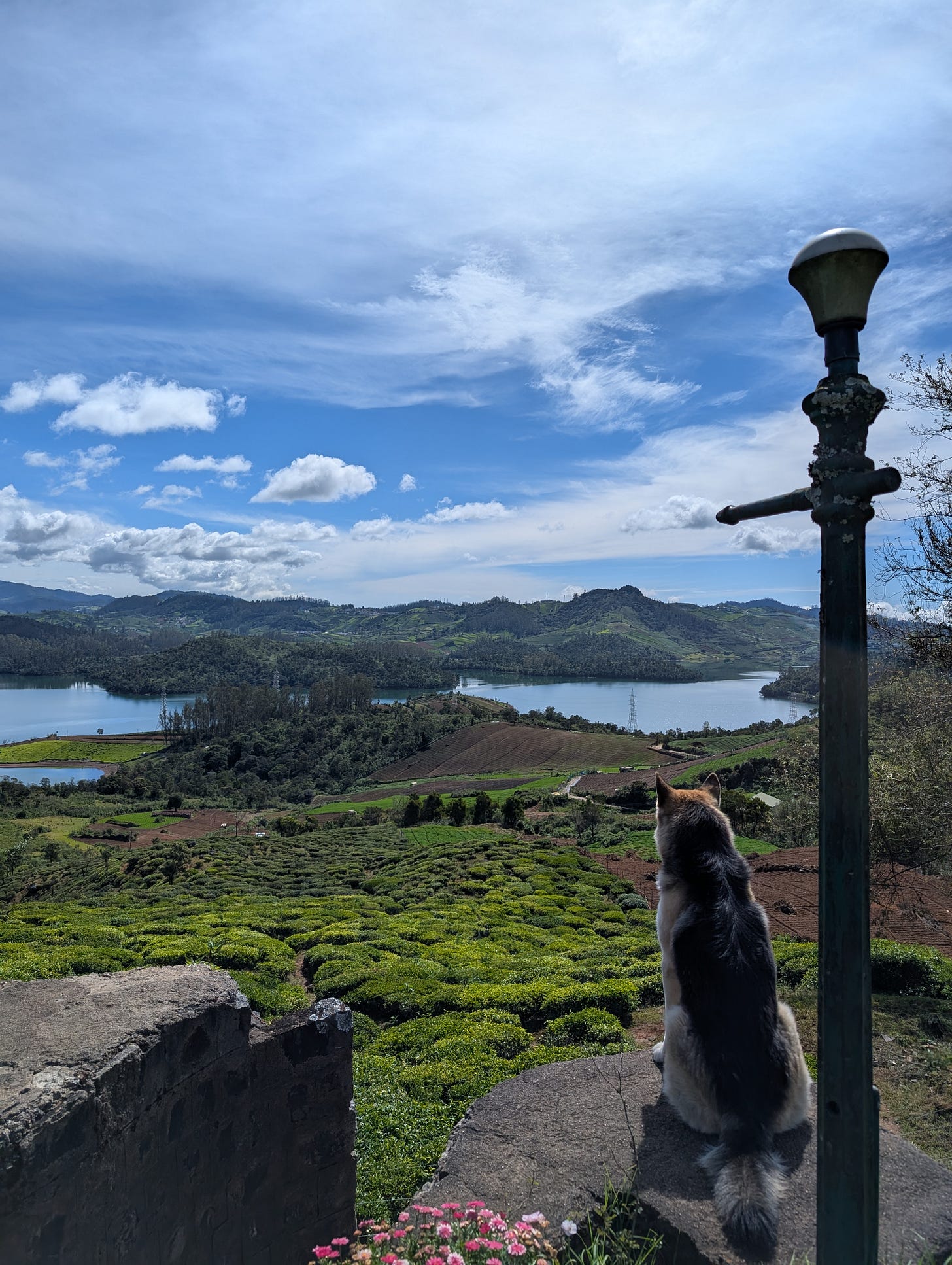I’m currently visiting my folks in the Nilgiri mountains of South India.
It’s one of the most gorgeous places you’ll ever see and like many other ‘most gorgeous places you’ll ever see’ there is a growing tension between the people who call it home and encroaching commercialism.
The people who live here do so because it’s green and beautiful and full of wilderness. But the people who own the rolling tea farms that help make it so wild and lovely, on the other hand, have realized they can sell their large estates to people from the smog-ridden plains who’d like a home in a prettier place.
The change is real.
In the few years my folks have lived here, almost all of their favorite walks are now increasingly dominated by newly built houses and noisy construction sites.
If things keep going this way, these gorgeous mountains will soon feature more rooftops than treetops.
Now, I don’t know how all of this will pan out. I certainly hope it can keep its charm.
But as I was thinking about this particular conundrum, it occurred to me that even though the issue is most often framed as ‘the people who love nature vs. the people who love money’, this problem is only zero-sum because of a difference in perspective.
“If you view an apparently intractable problem from a different angle…[say] you go climb a hill and look at the problem from a different vantage point…it’s not that the hill is part of the solution.
“It’s that a different perspective on a problem makes it a different problem. And therefore maybe one that can be solved in your formulation.”
David Deutsch, Reason is Fun podcast
So let’s look at this problem from two different hills.
The first hill we’ll look at this from is the hill the capitalist land owner lives on. Notably, he does not live in these hills. He actually lives down in one of the big cities quite a while away from these hills. So he sees things differently.
In his conception of things, he has some land in a place he doesn’t live in and a bunch of people around him would be willing to buy it from him. This is an easy call. Build and sell and buy more nice stuff in the city. What else is there to care about?
Now let’s look at this from one of these here hills.
The people who live up in these here hills love it precisely because of how few other people live here. The value of any given home is tied directly to the scarcity of other homes surrounding it. If the capitalist land owner was actually living in one of these here hills, he would know that.
The greener this place is the more valuable it is to live here.
So instead of trying to sell 100 small homes for $X each he might instead decide to sell 10 big homes for $10X each and keep more of these hills green in the process.
The money part of this equation is the same. (You could even argue it would be cheaper and easier to try and sell 10 properties than to try and flip 100.)
The difference is in your perspective of where the value actually lies.
Money follows value. Value follows values.
I’m sharing this little comparison because I think it illustrates something really important about the nature of value.
That is that money is a tailing indicator of value and value is a tailing indicator of values. Of preferences. Of human people just deciding they care about some things more than other things. Just because they feel like it.
That land owner could make just as much money if he valued what the people who live here value.
But crucially, the only thing that gives any of this land any value at all is that the people who live here value it! That they care about greenery and nature and running into byson and bears and leopards and green woodpeckers.
I’m not even trying to make a value judgment that those things are inherently more valuable than other things (though I do share those values).
Just that if you decide something matters - for no reason other than you feel like it - you are creating value. And if you can find the other people who share your view, you can run a profitable business by sharing your differentiated point of view.
Maybe you think software should be designed a certain way. Or that processes should be run based on certain principles. Or that you’ll gladly do things a certain way even if it meant losing everything.
When you embrace those values and articulate them, you’ll make money.
But money will be the least significant thing you make.


